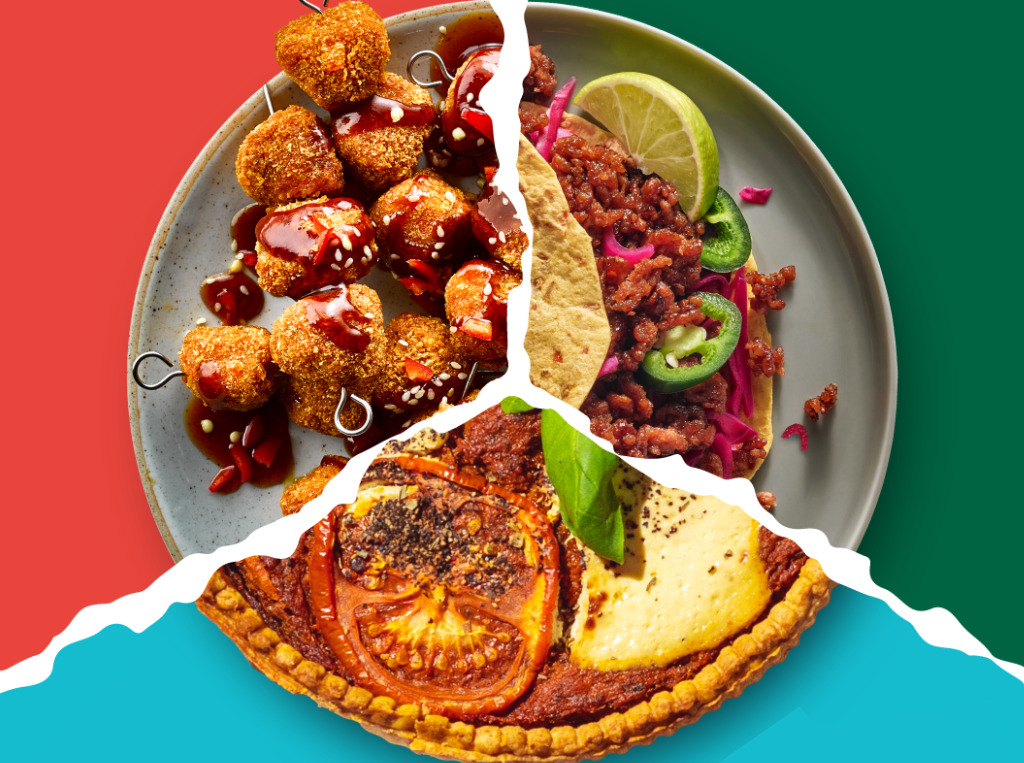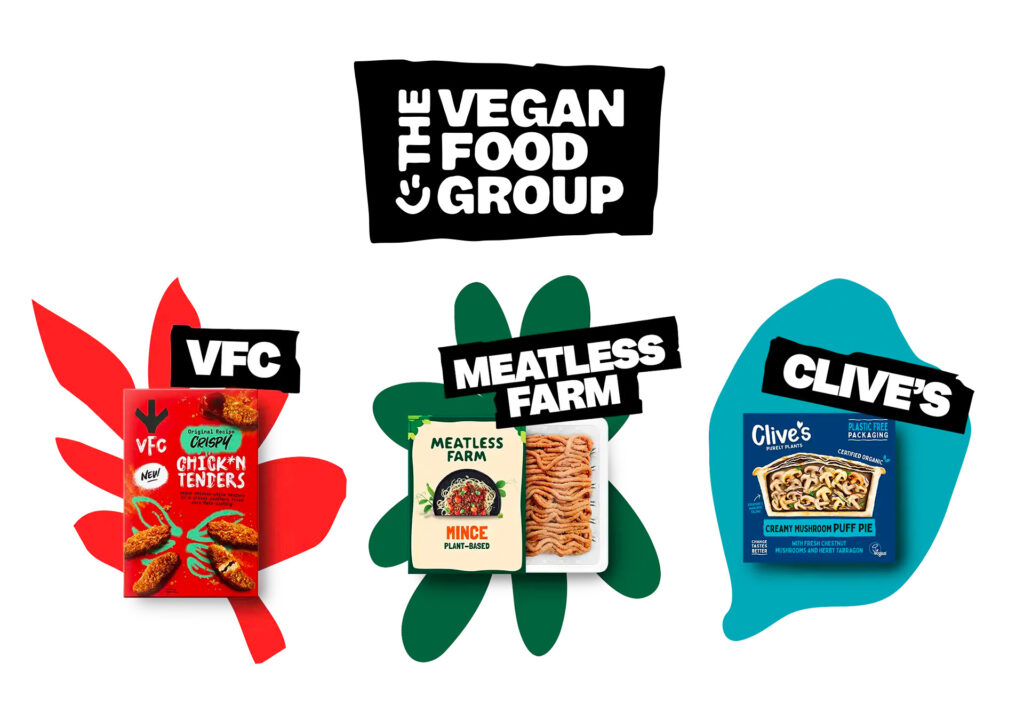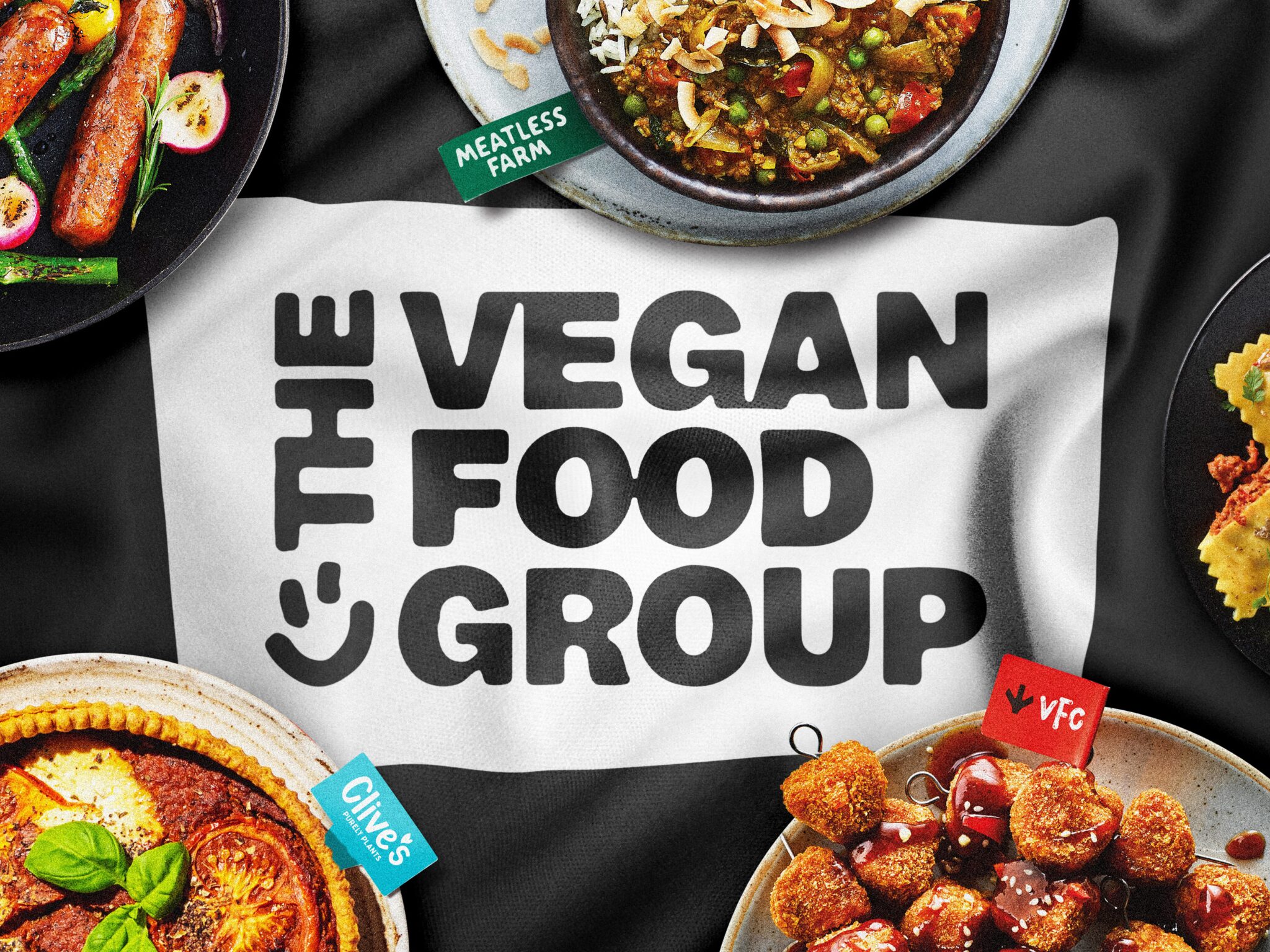From VFC to VFG: UK Alt-Meat Maker Rebrands with Aim to Become ‘Vegan Unilever’
4 Mins Read
After a year of acquisitions and continued sales growth, VFC Foods has rebranded to the Vegan Food Group with the aim of becoming “a vegan Unilever”, as it plans further deals and expects sales to hit £25M in 2024.
UK plant-based meat company VFC, which began as a challenger brand making vegan fried chicken in 2020, has changed its name to the Vegan Food Group (VFG) as it aims to accelerate its mission of becoming a global food leader.
It comes after a year of remarkable growth for the brand, which included the rescue of Meatless Farm from administration as well as the acquisition of pie company Clive’s Purely Plants. Now, it’s setting on a journey to become “a vegan Unilever”, with co-founder Matthew Glover expected to take a more hands-on role as the firm’s chief mission officer.
Doing well in a stagnating market

Launched in 2020 by Adam Lyons and Glover (who also co-founded Veganuary), VFC emerged as a plant-based fried chicken challenger with wacky, bold marketing. Three years in, the brand has witnessed strong sales that have allowed it to expand its portfolio of products and offerings, which has ultimately evolved into what is now VFG.
In 2023, the group rescued fellow vegan meat maker Meatless Farm from the brink of bankruptcy, purchasing the latter in a £12M deal for its UK operations (VFC paid just a small portion of the sum, keeping the brand assets intact). This was followed by the acquisition of Clive’s Purely Plants in October, which positioned VFC as “a formidable player” in the market, according to CEO David Sparrow. “With three strong brands experiencing substantial growth, we are well-positioned to further penetrate the retail and foodservice sectors in the UK and Europe,” he said at the time.
Highlighting VFC’s vast portfolio, he added: “What excites us the most is the diverse range of products we can offer consumers, from enticing meat alternatives to wholesome and delicious vegetable-based options, making us one of the most diversified players in the category.”
Last year also saw VFC’s sales value grow exponentially by 199.3%, according to NielsenIQ data for the Grocer’s Top Products survey. Despite this, it represents a fraction of the overall UK meat-free market, which itself experienced a slide in a cost-of-living-hit market. Meat alternatives were among the worst-performing product categories in the country, with sales declining by £38.4m, and volumes down by 4.2%.
Companies like Plant & Bean, LoveSeitan and VBites have collapsed, while Nestlé and Heck have withdrawn products from their meat-free offerings. “It’s clear that, whilst it will see continued growth and demand, the level of early capital and emerging brands has saturated the space,” Sparrow told Green Queen in September. “Consumer-led brands that stay true to their core values will weather the storm to create strong businesses.”
‘A vegan Unilever’

With the rebrand, VFG wants to become a leader in the global food space, with Glover set to work more closely with the management team. “With consolidation required in the plant-based space, and early signs of a rebound, the Vegan Food Group is well positioned to capitalise on market conditions and supercharge growth in the UK and Europe,” he says.
The food group has laid out a strategy echoing that of international food giants, focusing on consolidation with “streamlined operations, cost efficiencies, and a robust market presence”. “Imagine a ‘vegan Unilever’, but with the majority of future profits being donated to effective animal charities and diet change initiatives – that’s what we’re creating at the Vegan Food Group,” explains Glover.
By incorporating multiple brands, VFG hopes to tap into collective strengths and optimise supply chains to bolster innovation and set new benchmarks. The brand, which now boasts 80 SKUs across 21,000 points of sale in the UK and the EU, now anticipates sales reaching £25M in 2024. And earlier this month, it released a new line of frozen ready meals (fried rice and curry), as well as chilled chicken sausages and mince made from pea protein.
The new identity signals a “crucial milestone” in the company’s strategy, according to Sparrow. “We are already one of the most diversified players in the category with VFC, Meatless Farm and Clive’s under our umbrella, but it won’t stop there,” said the VFG chief. “We are actively reviewing strategic acquisitions to add to the group in 2024, building upon a successful 2023 trading year.”




